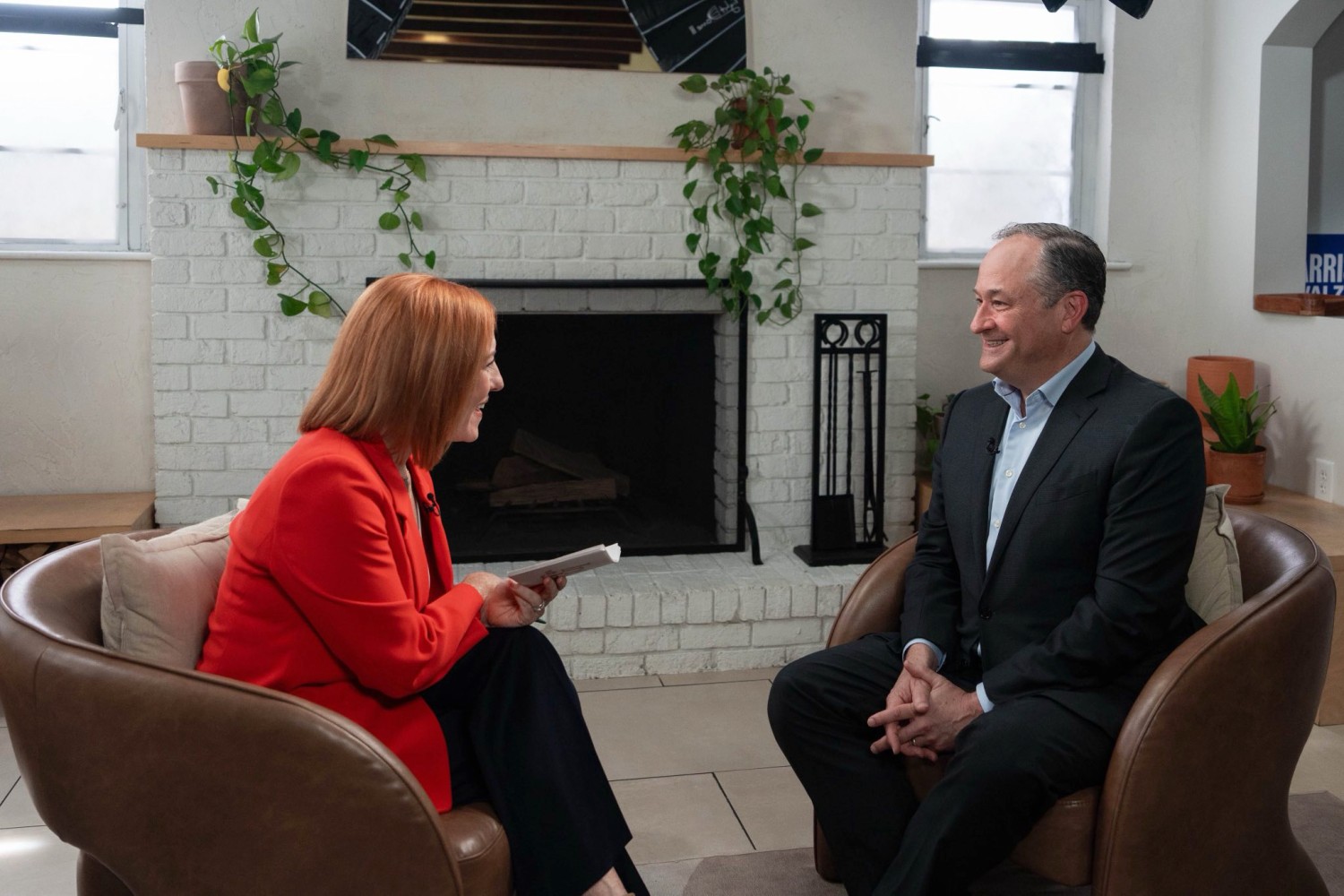
The Fear Factor: Doug Emhoff Unveils Trump's Debate Anxiety
In a recent interview with MSNBC, Doug Emhoff, the Second Gentleman of the United States, candidly addressed the underlying fear that Donald Trump harbors about debating his wife, Vice President Kamala Harris. When asked if he believed Trump was afraid to face Harris again on stage, Emhoff's response was unequivocal: “Yes, he should be.” This straightforward statement encapsulates a growing sentiment among political analysts and the general public alike that Trump may be avoiding a repeat of what could turn into another embarrassing debate performance.
As the election season intensifies, one might expect that candidates would be gearing up for debates that typically serve as pivotal moments in a campaign. However, the reality is that Trump seems increasingly hesitant to engage in further discussions with Harris. Even seasoned Fox News anchor Bret Baier has pointed out that it's Trump, not Harris, who is unwilling to consider another debate, indicating a significant shift in the expected dynamics of this electoral cycle.
Also Read:- Renato Moicano Dominates Benoit Saint Denis in UFC Paris Main Event
- Diljit Dosanjh’s Electrifying Performance: A Punjabi Celebration Like No Other
In a typical election year, candidates would be dissecting the outcomes of past debates, focusing on how to refine their messages and appeal to undecided voters. However, Trump’s apprehension appears to stem from the fear of facing potential ridicule on a national stage. Emhoff articulated that this fear is not just a personal matter; it also underscores the broader implications for Trump's campaign as he grapples with a volatile voter base and growing public scrutiny.
Looking ahead, the vice presidential debate scheduled for October 1, featuring Governor Tim Walz and Senator JD Vance, promises to be another critical event to watch. Although vice presidential debates traditionally don't sway the electorate significantly, this particular faceoff could be a game-changer for many voters seeking clarity on Harris' vision and policies. Vance, who has drawn significant criticism for his past remarks and controversial stances, is likely to come under fire, especially as he attempts to paint Walz in a negative light. Walz, on the other hand, is not merely defending his record; he is also showcasing a “radical agenda” aimed at improving education through initiatives like providing free school lunches.
Vance's campaign strategy seems to be rooted in casual confidence, downplaying the need for extensive preparation. However, recent polling data indicates that Vance's unfavorability rating is a cause for concern, placing him in a precarious position as he faces a determined opponent in Walz.
Meanwhile, in Texas, another noteworthy race is heating up, with Democratic Rep. Colin Allred emerging as a formidable contender against GOP Senator Ted Cruz. Polls show Allred making significant gains, leading to increased ad spending from the Democratic Senatorial Campaign Committee. Allred's past as a former NFL player turned civil rights attorney adds a compelling narrative to his campaign, making this race one to closely monitor as it unfolds.
As we navigate through this complex political landscape, Emhoff’s observations about Trump's reluctance to engage in further debates highlight not only personal fears but also the larger themes of accountability and the electoral process itself. The stakes are high, and as debates loom on the horizon, the nation watches closely, waiting to see how these confrontations will shape the future of American politics.
Read More:

0 Comments